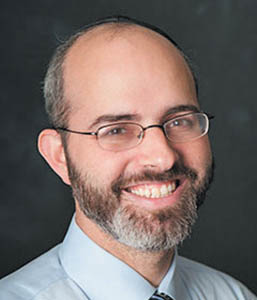
May these words of Torah serve as a merit le’iluy nishmat Menachem Mendel Ben Harav Yoel David Balk, a”h.
Bava Batra 54: Limits to the law of the land is law.
Our Gemara mentions the law of dina d’malchuta dina, secular governmental law is binding upon Jews. Rashbam has a unique explanation of this law: “All taxes, fees and commercial practices that rulers make the norm in their towns are binding law. The reason for this is that all the citizens of a country willingly accept upon themselves the rules of the king. His rules are therefore fully the law. One who takes a property based on the king’s rules is not a thief.”
Commentators derive an important lesson from the words of Rashbam. He did not give a rationale for the king; he gave an explanation for the kingdom. It is not dina d’melech dina—it is dina d’malchuta dina. If a king makes a law that only applies to a single person, that person would not need to keep it. If a king made law that was discriminatory against a particular group, it would have no validity under Jewish law. Only if the law was at least for a complete city or country—without discrimination—would the rules be binding. In addition, his rationale only applies to laws legislated by the government. However, if there is a dispute we are not to resolve it in secular court. Jewish law mandates that financial disputes be resolved in beit din. Even if the government said that the rulings of a court should be listened to, the law of arkaot prohibits us from following the rulings of the secular court and instead we should follow our rules and courts.
Mishneh Lamelech, in his book “Parshat Derachim,” dealt with possible limits for the law that observant Jews must observe secular civil law, dina d’malchuta dina.
The style of Parshat Derachim is to try to apply halachic modes of study to Biblical text and aggadic passages. Tractate Shabbos (88a) teaches that when Hashem gave us the Torah He elevated Mount Sinai and held it over us and said, “If you accept the Torah, good; if not, you will be buried there as I drop the earth on you.” The Jewish people then accepted the Torah. Rav Acha Bar Ya’akov added, “From here there is a great disclaimer about Torah observance.” Rashi explains, “If Hashem would summon the Jews to account for not fulfilling the Torah and the laws, the Jews would have a response. They could say, ‘We were forced into it, we never accepted Torah willfully.’” Asked Parshat Derachim: a man cannot coerce his friend to listen to his rules. If someone forces me to accept something, I have a moda’a claim. However, our Gemara teaches that dina d’malchuta dina, the law of a government is law. A human king can create a binding law on an observant Jew. Isn’t it then also the case that the King of Kings can impose laws on His subjects? Why was the coercive Sinai experience a possible excuse for the Jews? These are rules imposed by a king that become binding obligations.
He suggested that some medieval commentators limit dina d’malchuta to matters that directly affect the ruler and his government. The ruler and his government can impose rules upon us for the benefit of the state. However, perhaps he does not have the ability to impose rules on subjects that would help the citizens but do not provide him with any benefit. Mitzvah observance does not help Hashem. He does not need our actions. He gave us these laws to help us. Torah observance purifies man and teaches us how to be good people. Since the laws do not directly benefit the King but rather are for the good of his subjects, they were not within the rule of dina d’malchuta dina. We had to observe Torah law for Hashem forced us. Hence, the statement of Rav Acha that initially there was a disclaimer against responsibility for sin. The fact that we had been forced into observance was our disclaimer.
During the Purim miracle, we accepted the entirety of the Torah willingly, out of appreciation for the miracle. Now, according to all opinions, there are no excuses and we deserve to be held accountable for all of Torah and mitzvot (Oneg Shabbos, Alim Literufah).
By Rabbi Zev Reichman
Rabbi Zev Reichman teaches Daf Yomi in his shul, East Hill Synagogue.











